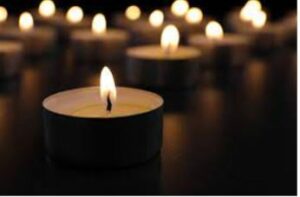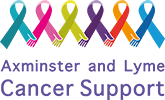End of Life/Bereavement
Bereavement

When someone is dying or has died, it is sometimes difficult to find the right words of comfort.
The most important message we can give is that you are not alone. We can offer you help and support during your grief and loss.
We are here for you during this difficult time and beyond.
Step 1 – Where Do I Start?
During the first few hours after a loved one has died, it can be very difficult knowing what to do with yourself. Knowing where to begin and taking that first step can be the hardest bit. While you’re waiting for the paperwork from the doctor or the hospital to register the death (usually sent electronically), there are a few things you can get on with if you want to.
One of these is finding paperwork which might detail, whether there are specific funeral wishes or requests for organ or body donation, these need to be identified soon after the death. If this isn’t necessary the other documents, will be useful when you register the death.
If you feel up to it you can also begin to call family and friends to let them know what’s happened. Another way of doing something useful is to activate the Mail Suppression Service. This simple but effective service helps to reduce junk mail and marketing mail in the name of the person who has passed away and in turn can help to reduce the risk of identity fraud.
Step 2 – Registering the Death
With the exception of when the Coroner is involved you’ll usually receive the Medical Certificate of Cause of Death (MCCD for short) electronically. You can then make an appointment with the Registrar to complete the official registration, it’s worth bearing in mind the death needs to be registered in the county where the person died, not where they lived.
You’ll need to take a number of documents along to the appointment.
The Register will give you information about useful services as well as various documents. The main ones will be:
- Death Certificates – These are all certified copies of the original entry which stays with the Registrar and are usually white/grey in colour. You can request as many of these as you wish, though there will be a charge for each copy. It is often cheaper to receive these on the day of registration rather than at a later date. If anyone asks you for an original Death Certificate, this is what they mean.
- Certificate for Cremation or Burial – Commonly referred to as the “Green Form” this allows the Funeral Director to officially go ahead with the funeral arrangements.
- BD8 – Registration of Notification of Death – DWP – You might not need this if you are offered the Tell Us Once service to notify the Government organisations of the death, but please note this service isn’t available in all areas. The Registrar will be able to tell you whether this is available.
Step 3 – Making the Funeral Arrangements
- If you’ve found a Will or even a Letter of Wishes this might give you an idea about what your loved one wants for their funeral. This can be a relief for some as it takes some of the decisions out of their hands, but it can be a concern for others especially if there isn’t enough money or the requests are unrealistic. It’s important to understand that funeral wishes in a Will aren’t legally binding and don’t have to be followed if they’re not possible. This can present a moral dilemma but doing the right thing doesn’t always mean following their wishes to the letter.
- A list of local funeral directors covering Lyme Regis, Axminster, Bridport, Chard, Seaton, Honiton, Ottery St Mary
A.J Wakely & Sons J.F. Clarke & Son W. G. Potter Overmass & Chapple A G Down E A Dodd & Son Hansfords Funeral Service B. Gibbs Funeral Services Ltd Shoobridge Funeral Services -
Step 4 – Building a Picture of the Estate
If you had Power of Attorney or managed the deceased’s finances you will probably have a clear picture of how the estate is put together. Alternatively the deceased may have been very organised, leaving you with a folder containing all the information you’ll need to look after the estate.
If you aren’t in this position it may take a bit more investigating but you will get there. Take some time to check through any paperwork for details of who they dealt with for banking and other matters. You’re only looking for a name – it doesn’t matter at this point whether accounts are open or closed. A starting point could be a debit or credit card in their purse or wallet, a bank statement, a utility bill or even a memory of a conversation about going to a certain bank or building society. It all helps.
-
Step 5 – Letting Everyone Know
There will probably be more people to tell about the death than you expect, and it can be hard to think of everyone.
It can be helpful to make two lists, one for personal e.g. family/friends/work colleagues and another for professional e.g. financial organisations/insurance companies/family solicitor/accountant/financial advisor. You can then use the lists to make additional notes, which will help you keep track of what you have done and what is left.
Step 6 – Working Out if You Need Probate
It’s worth remembering that Probate is only needed in certain circumstances, not just because a Will hasn’t been made or because the total value of the whole estate seems high. There are different factors which make Probate a requirement, but in simple terms it is decided by the value of individual sole assets within a person’s estate.
Step 7 – The Final Step
Once you’ve obtained Probate (if required) then you can arrange for any sole assets to be sold or transferred. Before you hand over anything to the beneficiaries you’ll need to make sure any debts are settled and Inheritance Tax has been paid.
When you’re comfortable that all debts have been paid you can either:
- Follow the instructions in the Will to pay any Legatees/Beneficiaries
Or
- Distribute the estate to the deceased’s relatives in line with inheritance laws.
It’s really important that you keep clear records that show what money is coming in and out of the estate as this will give you a clear paper trail showing how the estate has been administered. You can then put these together with the Death Certificate, the Will (if there was one) and the Grant of Probate (if this was required) to form your estate accounts.
This is a simple checklist which you may find useful as a reminder of what needs to be done after someone has died.
Download step by step checklist (PDF) 89KB
Some of these steps can be taken by the executor or administrator of the estate and others can be done by family or friends.
This information is just a guide, and not all of it will apply in every case.
To help you when filling out forms and writing letters, it may be useful to make a list of some of important reference numbers and information, such as the deceased’s date and place of birth and marriage, National Insurance number and tax reference numbers.
Supporting you
We aim to provide an environment to support anyone who has, has had, or is affected by cancer. We offer Bereavement counselling & Soul Midwife.

Beth Webb is a soul midwife based in the Axminster area offering comfort, support and reassurance to help a dying person experience the death he or she wants as well as support for the family.
Soul Midwives are non-medical, holistic companions who guide and support the dying in order to facilitate a gentle and tranquil death.
Soul Midwives
- listen, provide gentle therapeutic techniques and ensure compassionate care at all times
- work holistically with both the spirit and the soul of the dying person
- keep a loving vigil
- create and hold a sacred and healing space for the dying person
- recognise and support the individual needs of the departing soul to enable a tranquil death
- use sound, touch, colour and smell and other gentle techniques to help alleviate pain and anxiety
- support families and loved ones

Nayna Kumari is a body-focused psychotherapist. She did her Masters in Psychotherapy and Healing, studied Trauma with Babette Rothschild and learnt about how mind, body and emotions interact at The London School of Biodynamic Psychotherapy. Nayna trained in Bereavement Counselling with CRUSE Bereavement Care then worked on their National Helpline and helped with training volunteers.
Psychotherapy, Body-Psychotherapy, Bereavement Counselling, Pre-bereavement Counselling, Stress Therapies, Solution-focused therapy are all available through Nayna.
Nayna has recently moved back to London and is offering on-line consultations. You can ring her on 020 8995 7088 or e-mail nayna@nk-bodypsychotherapy.com
 Sophie is an Integrative Counsellor and has also worked previously as a Complementary therapist for over 30 years’. This experience allows her to be aware of how we hold our feelings in our bodies and looks for ways to work creatively with this.
Sophie is an Integrative Counsellor and has also worked previously as a Complementary therapist for over 30 years’. This experience allows her to be aware of how we hold our feelings in our bodies and looks for ways to work creatively with this.
Sophie works intuitively as an Integrative counsellor, providing a kind, compassionate safe space for you to be truly heard, a space for you to express yourself without any barriers or judgement. A space for you to bring the real you, the one we hide behind a veneer of “I am fine” when someone asks how you are.
Sophie sees counselling as Life Supervision, something everyone needs at different times of their lives to work through the sticky bits of life. A counsellor is a guide, who enables you to find your own way home. To feel truly heard without adaptation by someone else’s own experience seems such a rare and extraordinary thing.
As a counsellor it is about stepping aside from your own experiences and judgements to allow another’s words and feelings to be shared in all their entirety as if experiencing alongside them.
You can contact Sophie on 07719967329 01297 442572,
email therapyco-op@live.co.uk or see her Facebook page
Faith/Spirituality
St Mary’s Church is a Church of England church in Axminster – 01297 792120
St Giles’s Church – Kilmington
The Baptist Church – Kilmington
St Michael the Archangel Church – Lyme Regis
St Michael’s & St George’s Catholic Church – Lyme Regis
Hospice Care
After I’m Gone Folder

This is available free of charge on request.
Grave Talks with Rev Nicky Davies
For more information please click the links below –
https://www.churchofengland.org/life-events/funerals/after-funeral/what-gravetalk
Grave Talks with Rev. Nicky Davies – Axminster and Lyme Cancer Support
Dying for Beginners with Kath Gigg
We hold regular workshops with Kath – some resources below maybe useful.
Books:
With the End in Mind Kathryn Mannix
Dying, Death and Wisdom in an Age of Denial.
Being Rock Mandy Preece
A guide to being there for yourself and others; redefining listening so we all feel heard.
The Tao of Pooh Benjamin Hoff
While Eeyore frets.. and Piglet hesitates.. and Owl pontificates.. Pooh just is.
Listen Kathryn Mannix
How to Find the Words for Tender Conversations.
A Safe Journey Home Felicity Warner
A simple guide to Achieving a Peaceful Death.
The Soul Midwives’ Handbook Felicity Warner
The Holistic and Spiritual Care of the Dying.
Websites:
Kathrynmannix.com/videos/
Please find a copy of our client registration form to be completed here.
Please find attached for download our future planning document.
